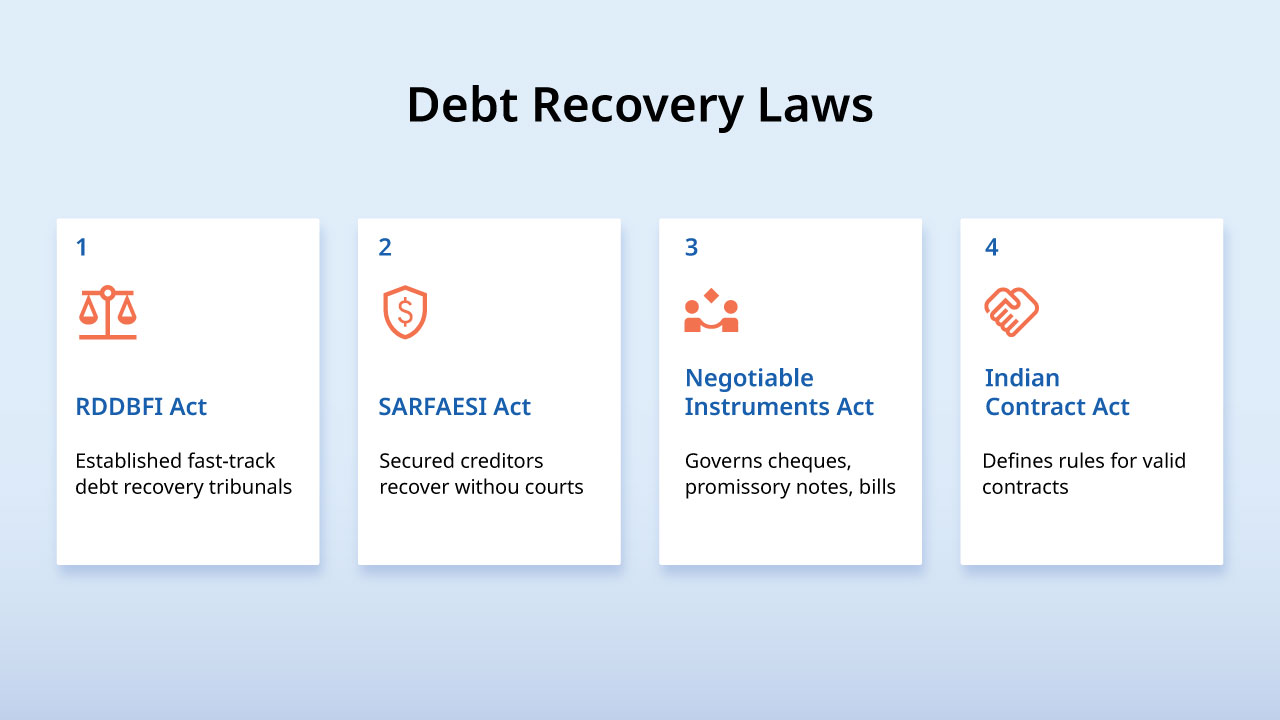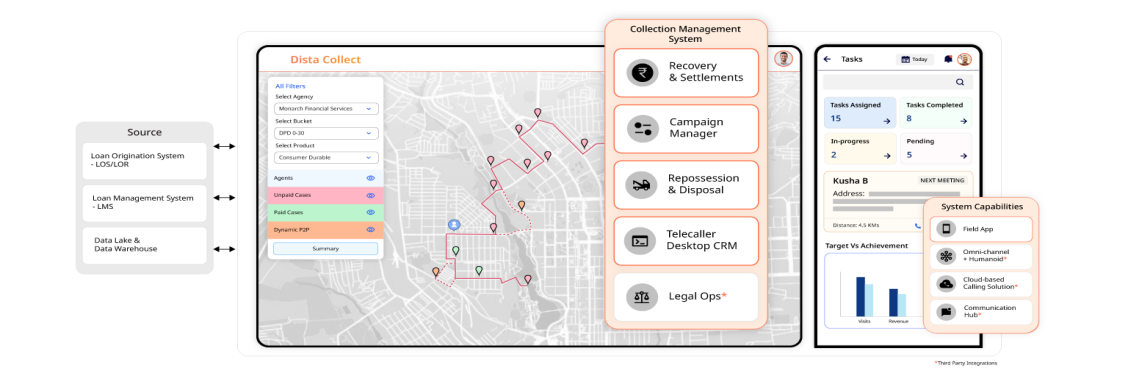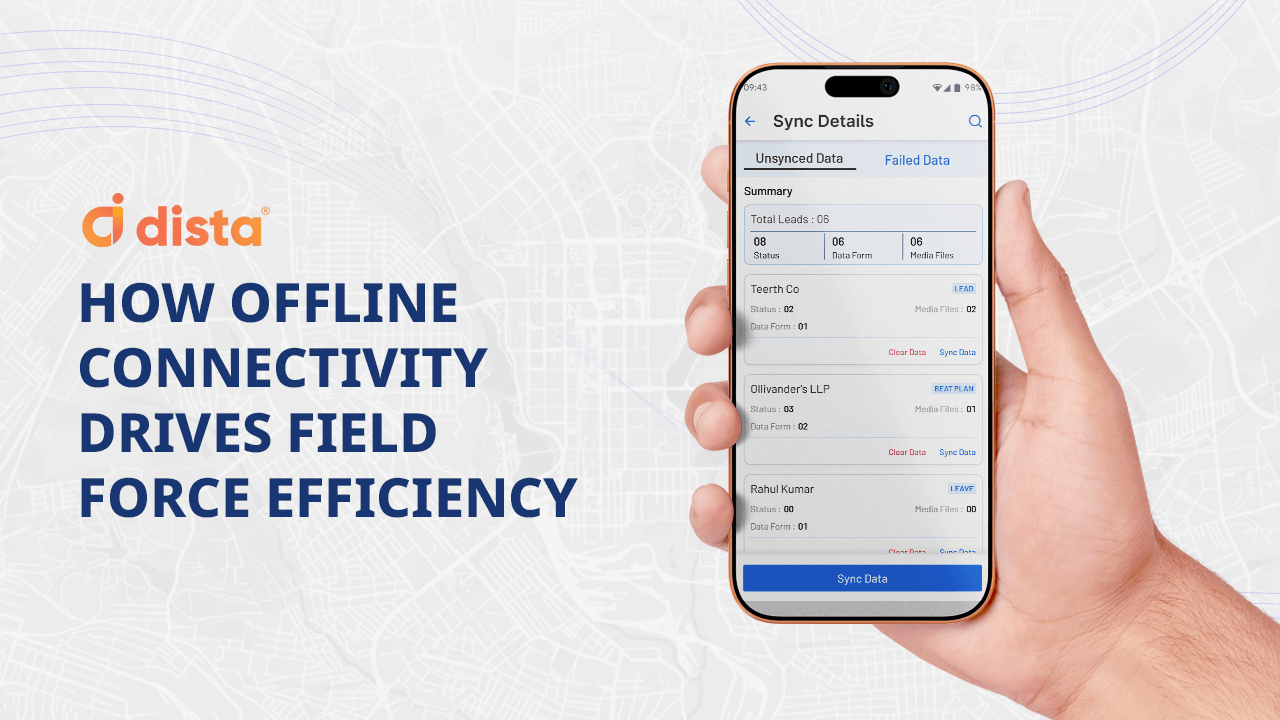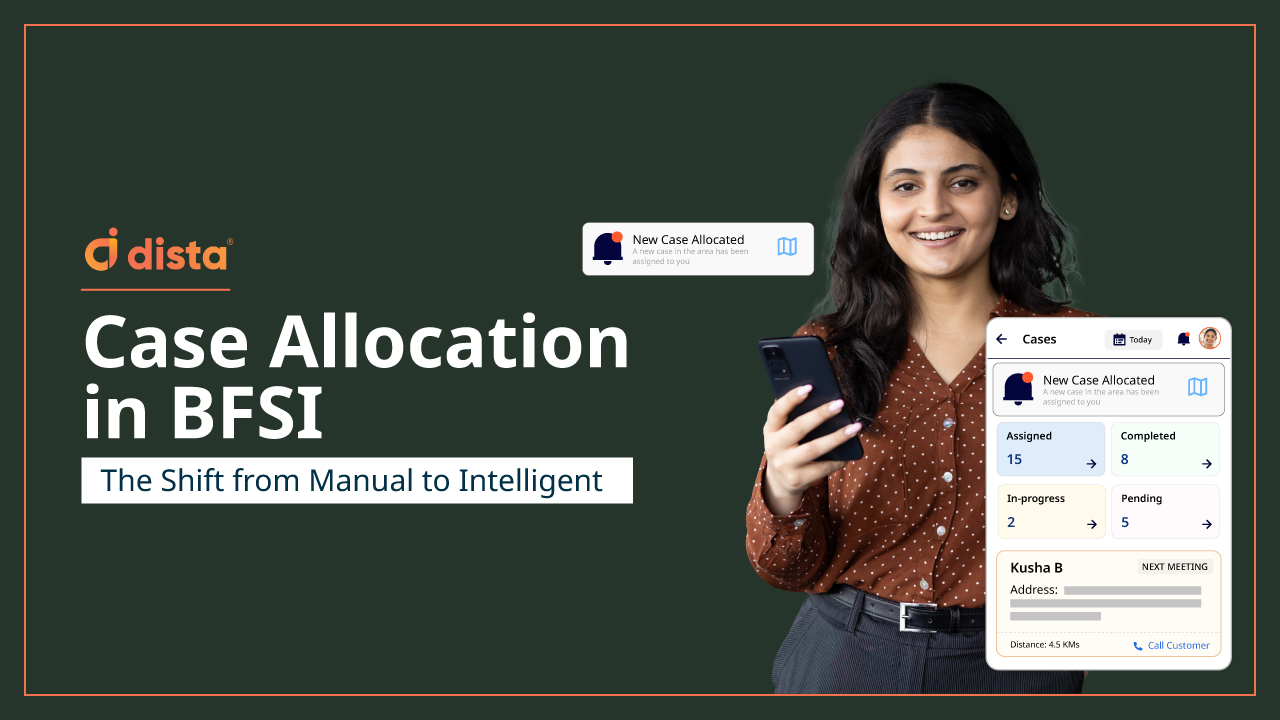Debt recovery in India is governed by stringent laws such as the RDDBFI Act, SARFAESI Act, Negotiable Instruments Act, and the Indian Contract Act. These statutes safeguard both lenders and borrowers, but for BFSI leaders, the real challenge lies in ensuring compliance on the ground while keeping recovery operations fast and efficient.
Missed notice periods, fragmented records, and poor audit trails often derail even the strongest cases, exposing banks, NBFCs, and insurers to compliance risks and slower resolutions. That’s where modern, RBI-compliant debt collection software like Dista Collect ensures that every action is logged, transparent, and defensible.

1. Debt Recovery under RDDBFI Act, 1993
The Recovery of Debts and Bankruptcy (RDDBFI) Act, 1993 provides for the establishment of Debt Recovery Tribunals (DRTs) and Appellate Tribunals to fast-track cases without traditional civil courts.
- Section 17: Empowers DRTs to hear applications by banks and financial institutions.
- Section 19: Sets the procedure for filing original applications.
Use Case:
A bank risks dismissal of a recovery filing because borrower records are scattered across teams. With Dista Collect’s 360° customer view and visit disposition logging, institutions can consolidate case history—field visits, call outcomes, and promises-to-pay—into a single evidentiary trail. This ensures Section 19 filings are complete, timely, and defensible.
2.SARFAESI Act: Secured Asset Recovery Compliance
The SARFAESI Act, 2002 empowers secured creditors to recover non-performing assets directly against secured assets.
- Section 13(2): A 60-day notice is mandatory before enforcement.
- Section 13(4): Allows seizure and auction of collateral if dues remain unpaid.
Use Case:
An NBFC initiates SARFAESI proceedings but struggles to demonstrate due diligence before enforcement. Real-time agent tracking and field visit disposition records in Dista Collect create a time-stamped log of borrower interactions and recovery attempts. When aggregated via custom reporting, these logs substantiate compliance steps and reduce disputes at the DRT or appellate stage.
3.Negotiable Instruments Act: Cheque Bounce Recovery (Section 138)
Dishonour of cheques is among the most common recovery litigations. Under Section 138, cheque bounce due to insufficient funds or stop payments is a criminal offence, punishable by fines or imprisonment up to two years.
- Section 142: Complaints must be filed within 30 days of the notice expiry.
Use Case:
An insurer faces repeated cheque bounce cases but struggles with coordination between collections and legal teams, leading to missed filing windows. With customizable workflows, multi-channel communication, and outcome-based disposition tracking, Dista Collect ensures every cheque dishonour is logged, borrower responses recorded, and cases flagged for timely escalation reducing the risk of lapsed limitation periods.
4. Indian Contract Act: Enforcing Borrower Agreements
The Indian Contract Act forms the basis of all lending and recovery contracts.
- Section 10: Defines essentials of a valid contract—consent, lawful consideration, and enforceability.
- Section 73: Provides for compensation in case of breach, including loan defaults.
Digital lending has expanded the scope of enforceability—digitally signed agreements and consent capture are now considered valid contracts.
Use Case (Retail Lending):
A housing finance company faces disputes over “what the borrower agreed to.” Customer 360 Profile in Dista Collect centralizes call logs, visit notes, and agent actions, ensuring contract enforcement is supported by a clear audit of borrower communications.
Use Case (Microfinance):
In rural and semi-urban microfinance, loans are often small in value and heavily dependent on center meetings. AI-driven case allocation and dynamic beat planning ensure agents reach borrowers consistently, while real-time tracking validates those visits. This strengthens repayment discipline and reduces disputes in communities where formal documentation may be limited.
How Dista Collect Ensures RBI Compliance in Collections
India’s debt recovery framework is robust, but compliance risks often emerge in execution. Delayed filings, fragmented records, and weak evidentiary trails can erode even the strongest legal recourse.

With features like AI-driven case allocation, dynamic beat planning, real-time agent tracking, 360° borrower views, multi-channel outreach, and audit-ready disposition records, Dista Collect ensures BFSIs recover not only faster, but also in a way that is transparent, compliant, and defensible.






